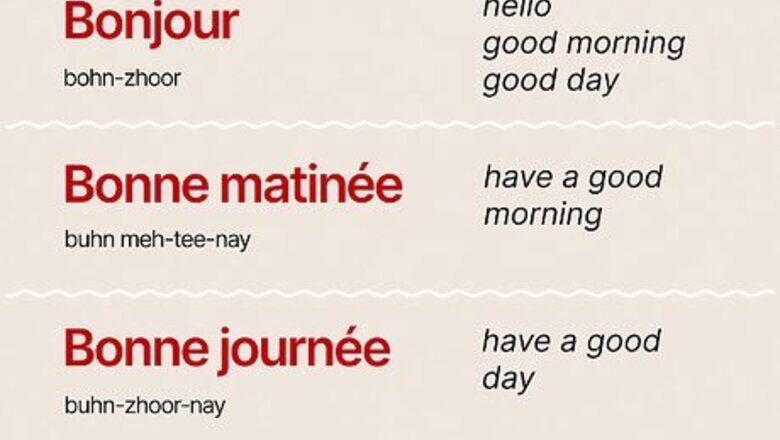
views
- Say bonjour if you want to tell someone good morning in French.
- Greet your friends in the morning with a casual salut.
- Personalize your greetings with titles like Madame and Monsieur or terms of endearment like mon amour or ma chérie.
Simple Greetings
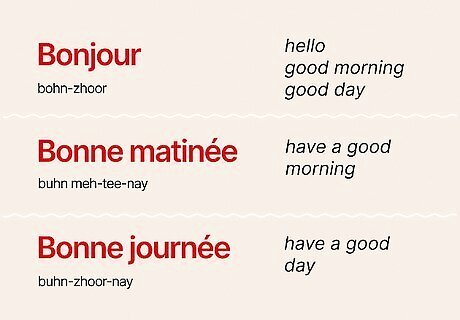
"Bonjour" (bohn-zhoor) is how you say “good morning” in most French-speaking countries. Bonjour is a pretty versatile greeting—it can mean “hello,” “good morning,” or “good day.” You can even use it later in the day to say “good afternoon.” In France, people always say bonjour to greet other people, even if the situation is a little unconventional. For instance, you’d said “bonjour” when entering a crowded elevator. If you’re exiting the conversation, offer a friendly bonne matinée (buhn meh-tee-nay) or bonne journée (buhn-zhoor-nay), which mean “have a good morning” or “have a good day,” respectively.
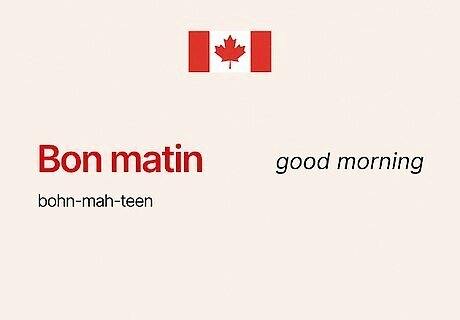
"Bon matin" (bohn-mah-teen) is a popular way to say “good morning” in Canada. Bon matin is the literal, word-for-word translation of “good morning” in French. Only use this greeting if you’re in Quebec, as many European French speakers don’t consider bon matin to be a “real” part of the language. The literal translation for “good morning” doesn’t organically exist in French—bonjour is the closest equivalent. Bon matin was created and inspired by the English phrase “good morning” and doesn’t have any roots in the French language.
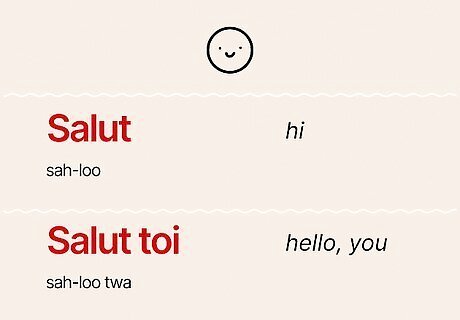
"Salut" (sah-loo) is a casual way to tell your friends “good morning.” Treat salut like a more casual form of “hello” (kind of like a “hi” or “hey” in English). It’s a great way to greet your friends in the morning, but it’s a bit too informal to use with strangers. You could use salut to greet a neighborhood friend or a family member, but you wouldn’t use it to greet a random person on the street. Greeting a significant other? Offer a flirtier salut toi (sah-loo twa) instead (this translates to “hello, you”).
Personalized Greetings
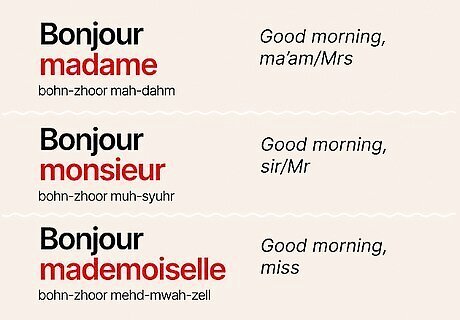
Add a formal title if you’re greeting someone you don’t know. Think of it like saying “sir” or “ma’am” in English when you’re chatting with a stranger for the first time. Simply include the title after bonjour, like this: Bonjour madame (bohn-zhoor mah-dahm): Good morning, ma’am/Mrs. Bonjour monsieur (bohn-zhoor muh-syuhr): Good morning, sir/Mr. Bonjour mademoiselle (bohn-zhoor mehd-mwah-zell): Good morning, miss. Always use titles to greet someone you have a formal relationship with, like your boss. It’s also a good rule of thumb to use titles when greeting people who are significantly older than you.
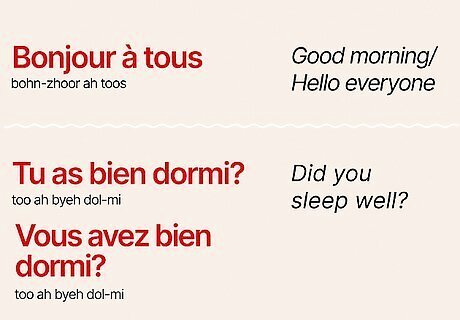
Greet a group of people by saying bonjour à tous (bohn-zhoor ah toos). Let’s say you bumped into a bunch of your friends at once. Instead of greeting them all by name, you could just say bonjour à tous, which means “Good morning/Hello everyone.” Unlike most French words, the "s" at the end of "tous" is pronounced, although it isn't drawn out. Add a caring touch to your greeting by asking Tu as bien dormi? (too ah byeh dol-mi) or Vous avez bien dormi? (voos ah-vay byeh dol-mi)—this just means “Did you sleep well?”
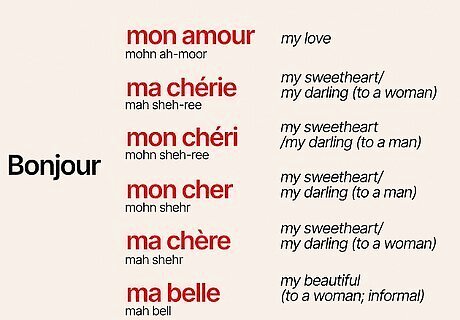
Include a term of endearment if you’re greeting a partner or loved one. Just say bonjour followed by the sweet nickname of your choice—that’s all there is to it! Here are a few options to choose from: Mon amour (mohn ah-moor): my love Ma chérie (mah sheh-ree): my sweetheart/my darling (to a woman) Mon chéri (mohn sheh-ree): my sweetheart/my darling (to a man) Mon cher (mohn shehr): my sweetheart/my darling (to a man) Ma chère (mah shehr): my sweetheart/my darling (to a woman) Ma belle (mah bell): my beautiful (to a woman; informal) When there’s a masculine and feminine form of the adjective, use the form that matches the gender of the person you're addressing. If only a masculine form exists (as with "mon amour"), the term is suitable for anyone. If only a feminine form is available (as with "ma belle"), it is only okay to use with women.



















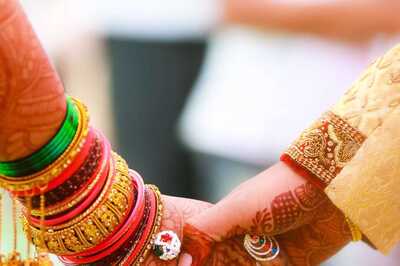
Comments
0 comment